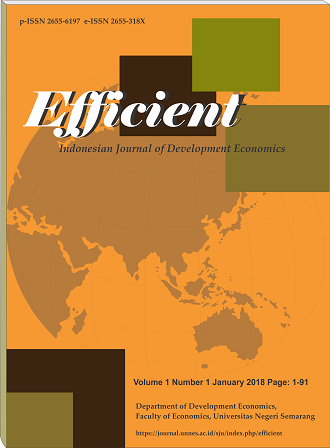Trade Creation and Diversion Effects of AIFTA Implementation
Abstract
The number of Free Trade Agreements (FTA) based on each region or so called as Regional Trade Agreements (RTA) has been increased rapidly after the World Trade Organization (WTO) continues to increase from year to year. This cause of international trade are becoming autonomous. The Indonesia's participation at the ASEAN-India Free Trade Agreement (AIFTA)greatly affect to the economy due to strategic trade partnership which tied between Indonesia and India. This research has intention to explore more relates to impact of trade creation and trade diversion from the implementation of AIFTA on Indonesia's exports and imports through aggregate and disaggregated data which consisting of 6 commodities. The sample used in this research are consisted of 25 countries during year of 2006-2017. Poisson Pseudo Maximum Likelihood (PPML) were applied as estimation method. With estimation results shows that the implementation of AIFTA has significantly negative affect towards the export trade diversion. This indicates that there is a decline occurs in Indonesia's exports to non-AIFTA member countries. In disaggregated data, net trade creation is found in food-drinks,tobacco and livestock, energy products also raw materials. Furthermore, this net trade diversion were also found in other manufactured goods and machinery and transport equipment.






